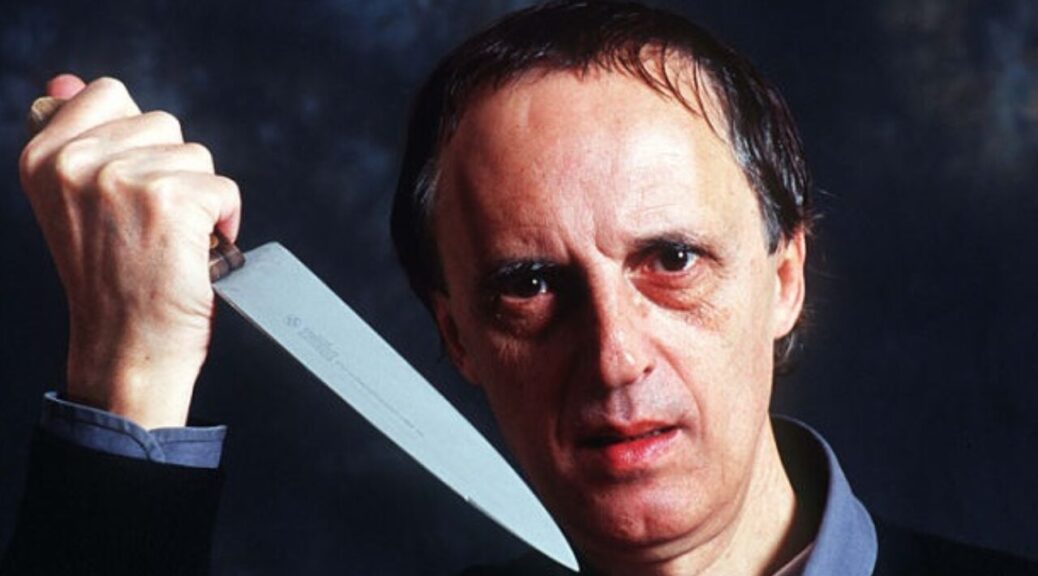Dario Argento Panico
by Hope Madden
In 2019, documentarian Simone Scafidi turned his attention to Italian horror filmmaker Lucio Fulci for the film Fulci for Fake. It seems only fitting, then, that he shine a spotlight on Italy’s most revered horror maestro – and a bit of an artistic adversary of Fulci’s – Dario Argento.
Panico follows Argento into seclusion in a hotel where he hopes to finish his latest screenplay. From there, Scafidi interviews the director as well as his oldest daughter, Fiore, essentially ruining the whole point of Argento’s stay at the hotel, which makes the setup seem odd from the start.
Argento knows what’s up, though, posing thoughtfully with beautiful architecture and charming Scafidi with the odd reminiscence. These moments pepper a chronological throughline of archival footage and movie segments as well as contemporary interviews with family and other filmmakers.
Few genre fans would argue Argento’s influence or importance in cinema. Gushing tributes from Guillermo del Toro, Nicolas Winding Refn and Gaspar Noé (who cast Argento in the lead for his 2021 drama Vortex) offer delightful glimpses into just what an influence he has been.
Not every opinion is positive – one friend of Argento’s even articulates the plain truth that the maestro’s Nineties output lacked all art.
What Panico lacks are follow-up questions. A number of provocative comments from interviewees seemed like opportunities to hear from Argento on the matter, and yet at no point does Scafidi dig in. This is most confounding during a fairly lengthy interview with Argento’s younger daughter, Asia.
The star of six of her father’s films, beginning with Trauma when she was 16, Asia Argento has been the center of a great deal of speculation and debate concerning her father as a filmmaker and as a parent. And though she spins each unusual parenting or directorial choice as if it’s natural, positive, or wise, most of the time it clearly is not. In fact, an entire (and far more interesting) look at who Dario Argento is and what we should make of his movies could be carved out of just her interview, had Scafidi double checked any of it with her dad.
Nope. Instead, Dario sits across a table from Fiore. She asks him how he managed to be such an amazing dad, always doting on his two daughters. He says that’s just how a person goes about being a father.
I’m not bothered by a superficial doc that just points out why a filmmaker managed to leave such a remarkable legacy in a single genre. But if you’re going to tease us with actual information, choosing not to address any of that information makes for a very frustrating viewing experience.



